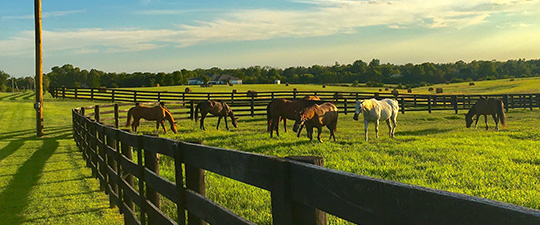Wednesday 28th June, 2017

The warmer weather sees horses and their owners breathe a collective sigh of relief at the return of turning out. Not only will you get a much needed rest from mucking out, your horse will benefit from increased condition and tone as he roams around the paddock. Before you thrown open the gates and set your stable mate free, you first need to prepare your paddock. Here are our top tips to ensure that your fields are a safe environment for both you and your horse.
It goes without saying that secure fencing is essential to keep your horse in, but pay careful attention to its condition particularly after the winter season. Damage can occur through horses leaning on or rubbing against fence rails and gate posts, and severe weather may have cause rails to splinter and crack. Perimeter fencing checks should be carried out on a regular basis, and especially when turning out boisterous horses who may test the boundaries!
Come rain or shine, it is vital that your horse has somewhere to take refuge whilst in the field. There are many different types and designs of field shelter, so if you haven’t already got one in place, or your current shelter is in disrepair, then now is the perfect time to invest in a new one. Field shelters can be fixed with solid foundations, which will require planning permission, or mobile, which do not require permission and allows you to relocate your shelter whenever you need to. When designing a bespoke field shelter, you will need to consider the materials used and also the number of horses in your paddock. Quality field shelters should be constructed with pre-treated timber of the correct thickness and length to withstand a horse’s weight. The field shelter should be at least 3-3.6m wide to accommodate one horse, with an extra 1.5m added to the width for every additional field mate who will require access to the shelter while turned out.
In order to keep your grazing in top condition all year round, you need to make sure that you practice good pasture management. Fields that have multiple horses grazing on them at any one time will benefit from regular rotation to allow each area to recover. Segregating fields allows yard owners to rest and reseed fields as necessary, and while paddocks are resting, you can remove droppings as part of your parasite control programme and any toxic plants such as ragwort before the field mates return.